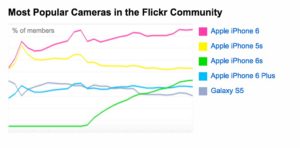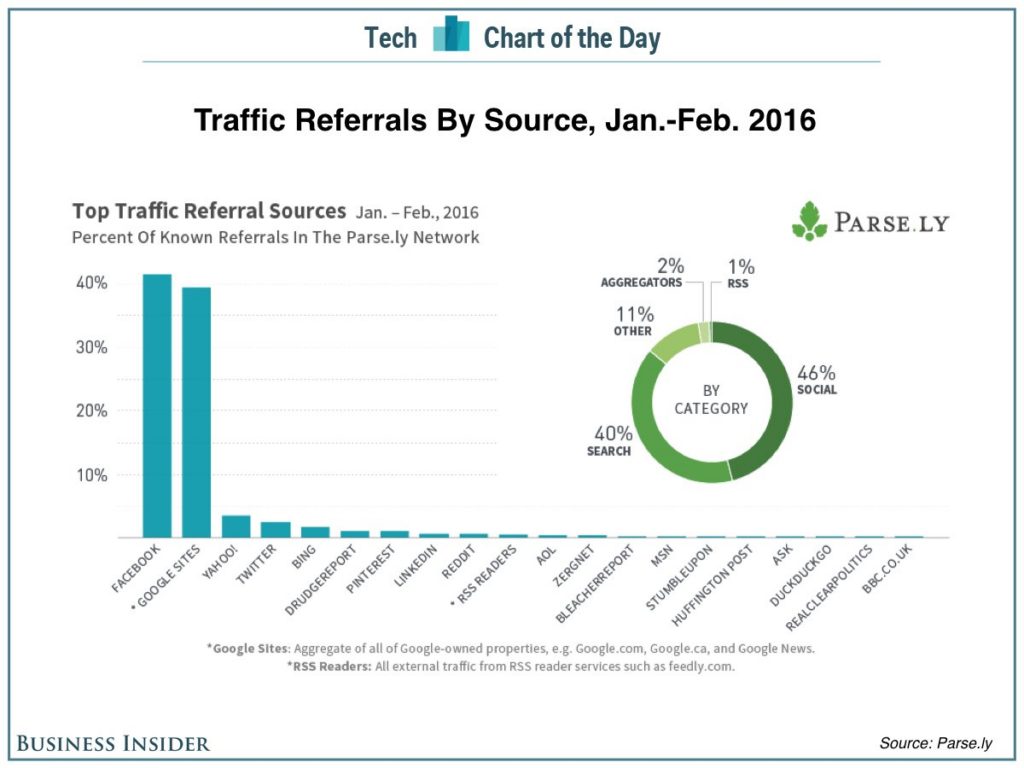Coming September 16, apparently.
Metropolis
Larger size here
If the EU doesn’t take on Google, who will?
Last Sunday’s Observer column:
Last week, the European commission, that bete noire of Messrs Gove, Johnson & co, resumed its attack on Google. On Wednesday, Eurocrats filed formal charges against the company, accusing it of abusing its dominance of the Android operating system, which is currently the world’s most-used mobile operating system software. This new charge comes on top of an earlier case in which the commission accused Google of abusing its overwhelming dominance of the web-search market in Europe in order to favour its own enterprises over those of competitors.
This could be a big deal. If the commission decides that Google has indeed broken European competition law, then it can levy fines of up to 10% of the company’s annual global revenue for each of the charges. Given that Google’s global sales last year came to nearly $75bn, we’re talking about a possible fine of $15bn (£10.5bn). Even by Google standards, that’s serious money. And it’s not exactly an idle threat: in the past, the Eurocrats have taken more than a billion dollars off both Microsoft and Intel for such violations.
To those of us who follow these things, there’s a whiff of Back to the Future here.
Can I see your phone?
Lovely video made by Liberty about the powers being legitimised in the Investigatory Powers Bill
Zuckerbergus Imperator
This morning’s Observer column:
Power and money are the two great aphrodisiacs, and few people or institutions are immune to their attractions. Not even the Economist, a posh magazine which resolutely sees itself as floating above the vulgar ruckus of journalistic hackery. Last week, like an elderly dowager seduced by Justin Bieber, the venerable publication checked its collective brains at the door and swooned over Mark Zuckerberg, the infant prodigy who now presides over Facebook, and so possesses both power and money.
For the cover illustration, the magazine photoshopped a picture of a celebrated statue of Emperor Constantine the Great (272-337). Young Zuckerberg’s head, adorned with a wreath of gold laurel leaves, replaced Constantine’s. The sword in his left hand was replaced by a Facebook logo, and the emperor’s languidly drooping right hand was rotated 180 degrees so that it now gave the thumbs-up that is Facebook’s “like” symbol. (The gesture had a rather different interpretation in Roman times.) On the plinth of the statue were the words: “MARCVS ZVCKERBERGVS” and CONIVNGE ET IMPERA”, which is the nearest the photoshopper could get to “connect and rule”.
On inside pages one finds an editorial and a long article explaining why Marcvs Z is the greatest thing since Constantine.
Referendum blues
The UK Referendum campaign has officially begun (though it’s been unofficially running for ages), with both sides pushing meaningless, irrelevant and often misleading statistics at innocent citizens. These are the usual currency of what passes for political debate in these parts; statistics are tokens of a pretence that public discourse is about rationality when in fact it’s nothing of the kind. There is no way that anyone could make up his or her mind about the issue facing the UK (and the continent of Europe) on the basis of any number — or of any historical time-series of numbers. This is all about values, perceptions, prejudices, ignorance and illusions.
The irony, of course, is that the question UK citizens are being asked to decide — whether to remain in the EU or leave — is of colossal import. Yet 99+ per cent of the discussion in Britain is exclusively about the UK. Will it be better or worse off outside the Union? Almost nobody seems interested in what the UK decision to leave might do to the EU itself. In that sense the debate has already been ‘framed’ — as George Lakoff would say. ‘Europe’ doesn’t really matter: it’s All About Us.
Given what else is happening in the world, this pernicious solipsism is not only depressing; it’s downright dangerous. Of course it’s predictable: most political debate in democracies is simplistic and myopic. (Just look at the Republican primary contest in the United States, for example.) So it’s naive to expect anything better. Or is it?
The most striking thing about the campaign so far is that the only people who seem to be really passionate are the ones advocating ‘Brexit’. They are — as the Times columnist Matthew Parris pointed out in a Spectator article last week, a pretty repellent lot on the whole: a mixture of xenophobes, little-Englanders, right-wing fanatics, free-trade fundamentalists and imperial nostalgics, effectively (though not officially) led by Boris Johnson, who is the kind of political opportunist who gives charlatans a bad name.
These people remind Parris of Ian Smith and the Rhodesian white supremacists who campaigned for UDI in the 1960s. “Though on paper”, he writes,
“the case for Rhexit did include some positive arguments about the opportunities, vistas, horizons for a Rhodesia that had sovereignty, when you looked at the people advancing it you were looking at haters, resenters, men who bridled at the way things were going. In a colloquialism that had not yet been coined, I felt the vibes were negative. It was thin-lipped stuff.
I distrusted this. I distrust it now in the men and women who are as a matter of fact making the case for quitting the EU. I know the case could be made differently. I know a warm, optimistic person, comfortable with his times and positive about the future, is logically capable of campaigning for Britain to leave the European Union. It’s just that as a matter of fact I don’t see many examples.
I don’t see many either. In his Times column on Saturday (sadly, behind a paywall), Parris points out that he is a bit of a Eurosceptic. “Here’s a riddle”, he writes:
I’m hot for staying in a club that leaves me cold: losing sleep about the real possibility that Britain may quit an organisation for which I hold no candle at all. And there are many like me: we see the EU as a flawed and irritating institution whose future is foggy. Yet we’re certain — almost passionately so — that this is no time to leave.
In a way, Parris puts his finger on the nub of the problem. The people who want Brexit are passionate in their hatred of the EU. But those who think — like him (and me) — that leaving would be a mistake don’t seem to be able to muster anything like the same passion for their belief. And therein lies the danger: for — like Trump in the Republican primaries — the combination of anger, hatred, xenophobia and illogicality combine to product a powerful narcotic.
Deep down, the problem is that the EU is — and always was — an elite project which never had much in the way of popular approval or democratic legitimacy. If anyone doubts that then they should see the remarkable BBC documentary made by the former BBC Political Editor, Nick Robinson, that has recently aired on the BBC. In the first of two programmes, Robinson told the story of how the EU was founded, and of how UK popular hostility to the project was circumvented by Edward Heath’s Machiavellian mastery of parliamentary politics to ensure that the UK joined the European Community (as it then was) in 1973. The moral of the story was that, if it had been left to popular opinion — and the views of most British MPs — then Britain would never have joined the thing in the first place.
But here’s the irony: sometimes — even in democracies — elite projects make sense. The origins of the EU lay in the European Coal and Steel Community put together by the post war leadership of France and Germany. The aim was to ensure that the rivalry between France and Germany that had led to two catastrophic world wars could not happen again. How? By putting the two industries — coal and steel — that had underpinned war between them under common ownership. It was a brilliant, simple idea — and it worked. Britain could have been part of the deal, but the British government of the day havered and in the end was left out. As the Coal and Steel Community morphed into the fledgling European Economic Community, Britain belatedly tried to join, but was rebuffed by Charles de Gaulle, and in the end — after de Gaulle fell from power and replaced by Pompidou as President — the UK was manoeuvered into the EC by Heath and his Parliamentary tricks. It was a stunning achievement on his part, but it never had wholehearted democratic support in Britain. And so the die was cast.
It turns out that there wasn’t widespread democratic enthusiasm for the project in many parts of Europe either, but for a long time that didn’t matter because the project thrived as prosperity grew on the Continent. People were able to swallow their scepticism so long as the money — and the subsidies — flowed. As an Irishman I saw this at first hand. For my country, membership of the EC proved an economic as well as a spiritual bonanza. In economic terms, the Common Agriculture Policy ploughed development funding into Irish farming, and triggered development on a scale hitherto undreamt-of. And spiritually it enabled the Irish Republic to escape the shadow of its former colonial master and to strut the world stage as a ‘proper’ country.
But for the British, ambivalence remained because the country’s imperial afterglow still infected its political class. If, for Ireland, membership of the EC signalled a transition to full nationhood, for the British it means a tacit admission that the UK — on whose empire the sun once never set — was now just another country. Like France and the Netherlands (which had been invaded by Germany). Or, worse still, like Italy.
Still, for a time, these resentments simmered below the surface. British membership of the EC (and, later, the EU) brought significant economic advantages. Imperial delusions were retained with the country’s so-called ‘independent’ nuclear deterrent and Britain’s permanent membership of the UN Security Council. But when the banking crisis, the subsequent recession and the free movement of peoples enabled by the Single European Market, the Eurozone crisis and finally the migration crisis finally brought the EC to its knees, those simmering resentments surfaced once again, and eventually became toxic. Which is why, in the end, David Cameron had to concede the Referendum and brought us to where we are now. The elite project could no longer deliver the goods, and the Brits who were always sceptical about the project started to look for the exit.
It’s clear that the EU is now in a mess. With the benefit of hindsight, it’s easy to see that hubris played a significant role in bringing this about. The rapid ‘enlargement’ of the community to take in the countries of the former Soviet bloc seems, in retrospect, to have been a mistake. Likewise the inclusion of economies like those of Greece, Spain, Portugal (and perhaps Ireland) into the Eurozone was unwise (as many people, including the British Chancellor, Gordon Brown, warned at the time).
But hindsight provides fake clarity, for even the Eurozone project had some honourable rationales. In some ways, for example, it was a logical extension of the single market idea. In that conetxt, a recent conversation I had with someone who had once been an advisor to Helmut Kohn, the German Chancellor at the time, is interesting. He said that as Kohl embarked on the reunification of Germany he worried about the possibility of a resurgence of hostility towards the German hegemony that would result from the project. Kohl, my informant told me, saw the folding of the Deutschmark into a wider shared currency as one way of mitigating the danger.
The danger posed by the UK referendum is that the domestic debate does not take into account the possible implications for the EU of a British exit. My German and Dutch friends are deeply worried about this. Their feeling is that a British departure would, in the end, lead to the disintegration of the European project. This might not matter too much for the ‘core’ countries, which will remain committed to some kind of union (though one wonders about France is Marine Le Pen continues to make electoral headway). But it would have a dramatic impact in some of the peripheral countries, where right-wing and nationalistic parties are currently in the ascendant. The future of the Schengen agreement on freedom of travel looks increasingly fragile; if that were to collapse, then so would
If the EU were to unravel, then the consequences could be truly dire. Putin’s adventurism at the Eastern fringes of the union would doubtless become bolder and more destructive. Internal rivalries between European countries could become toxic. Turkey’s Erdogan clearly sees the EU’s difficulties as his opportunity: the deal on migrants with him brokered by Angela Merkel and his belligerence towards free speech in Germany are two straws in this wind. The continuance of chaos in the Middle East, instability in Africa and the impact of global warming will continue to accelerate the migrant crisis. And the probability of warfare once again in Europe — up to now regarded as unthinkable — could increase.
None of these terrible things may happen. But the probability of at least some of them happening is no longer zero. And in an ideal world they ought to be factored into any intelligent vote in the referendum. If the current level of the debate is anything to go by, however, they won’t.
Resources, resources, resources
Here’s an instructive story:
Just three months after launching Facebook Live to all users, Mark Zuckerberg decided to go big, realizing in a February meeting that the company should make Live a top priority. A BuzzFeed story on Live tells us what happens next, quoting Facebook Media’s product lead Fidjij Simo:
“The original Live team was composed of only a dozen or so people. But the vision laid out for the product at that February meeting would require more than 100 engineers to build. ‘The meeting was on a Thursday, and on Monday, [Facebook Media engineering lead Maher] Saba and I were standing in front of 150 engineers,’ said Simo.”
From 12 engineers to 150 in less than a week. That’s the new pace of the media business.
Now here’s another instructive question: how many engineers are working on the iPhone camera?
50?
150?
Nope. At the moment, there are 800 engineers working just on the camera.
Which leads me to wonder how many people work in the R&D divisions of Nikon and Canon?
See what conventional companies are up against?
At present, the most popular cameras among Flickr users are all iPhone models. By a mile.
A Prime Minister who knows about quantum computing. Whatever next?
I’ve been idly thinking about how David Cameron (or, for that matter, Boris Johnson) would answer such a question.




